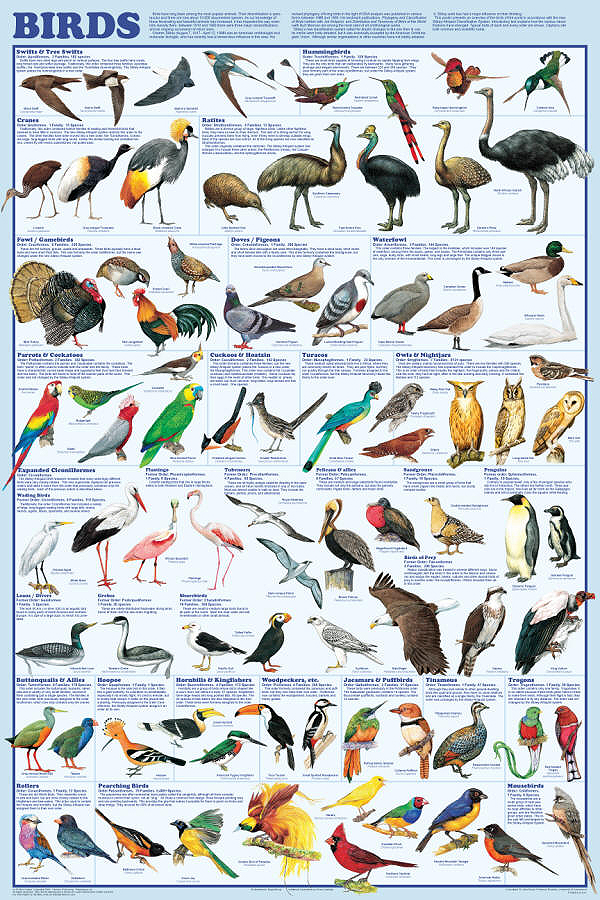|
|
|
Bird Orders - biological groups |
|
 |
A152 Birds
This is an especially important poster because it presents the new
Sibley-Ahlquist bird classification system. Based on recent DNA studies, this
system uses cladistics to reconstruct the evolutionary family tree. Who would
have thought that birds as diverse as flamingos, eagles, and penguins would
end up in the same clade? However, this revolutionary new system has been
widely accepted by North American ornithologists and has made the previous
bird classification system obsolete. Although this poster shows true clades, the
scientific community continues to use the order names, which are cited.
This is a truly beautiful poster, one greatly appreciated by bird lovers. It
certainly enhances the decor of their home or office, yet it presents information
that has even greater value. All the bird clades are explored, and all of the
many classification changes resulting from the transition from orders to clades
are explained. This information has never before been published in such a
concise and convenient form, making this poster an essential reference for
anyone seriously interested in birds.
|
| Vertebrate Orders
|
This is one of the four posters in our
vertebrate orders set. They provides a comprehensive
overview of the living vertebrates. Animal life is now
undergoing the transition from the Linnaeus classification
system to the new cladistic classification system. Birds
have been reclassified under the new system. There have been
many systems proposed for the other animals, but none has
been widely accepted. This required that the posters present
the animals in the context of their existing Linnaeus
orders. Each of these posters present all of the orders
within the group. There are so many marsupials and
cartilaginous fish that they are presented as super orders.
Each order is introduced by the common name or names (such as
whales, dolphins and porpoises), followed by the biological
name (Cetacea), the number of species, and a brief
description. A great many representational animals are
beautifully shown, all identified by both common and
biological names.
This is the first time that a comprehensive overview of this enormous and
complex subject has ever been presented on posters. This set
is invaluable for life science classes and anywhere else
that the study of animals takes place.
|
|
|